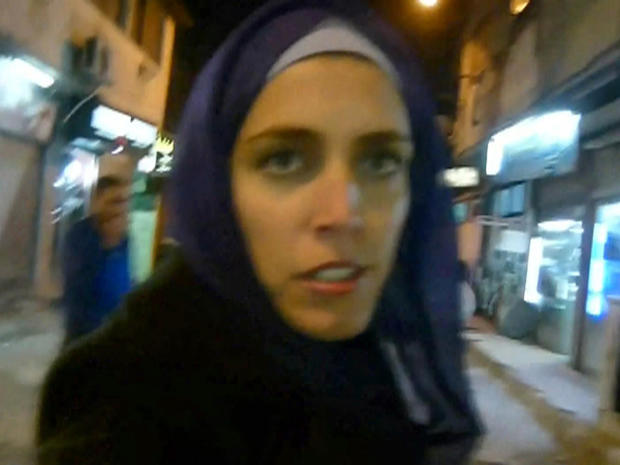Sneaking into Syria
I entered Syria as a tourist and, for the first two days, that is exactly what I was. Heading for Damascus on the road from the border with Lebanon, my driver -- who had no idea of the real purpose of my trip -- was keen to assure me that all was well in the capital.
"Look here, the life is normal. Do you see any army? There are no problems here," he told me as we drove. On the surface, what he said seemed true.
Shops were open and there was traffic in the streets.
Video: 15 killed at anti-regime Syria protest
U.N.: Syria now in a civil war
But as I walked through the cobbled lanes of the old city, I was struck by the realization that I was literally the only foreigner there.
The Hammoudiya Souq, with its incredible array of spices and glittering jewelry stalls, is normally jammed with tourists from all over the world, ooing and aahing over the beautiful wares and trying out their new-found bargaining skills.
But now, my presence was enough of anomaly that one vendor approached me with a pair of earrings.
"You must take these," he told me.
"But I can't take them. I must pay for them," I protested.
"No, no. They are a gift, a thank you for coming to see us."
At beautiful boutique hotels, managers speaking impeccable English invited me to drink tea and I listened as they lamented the lack of visitors. Direct references to the political situation were kept to a minimum (no one stands to benefit from speaking frankly with a foreigner) but it was clear that for many, life has come to a standstill.
"We know we can only wait," one manager told me.
The restaurants were still crowded with well-heeled Damascenes, smoking hookah pipes and laughing as though they had not a care in the world -- a blissful bubble of denial.
But when a blackout came halfway through dinner, the waiters immediately switched on flashlights, which they had at the ready. Clearly, it was not the first time the lights went out -- a small sign that tough international sanctions have permeated everyday life in the Syrian captial.
The main purpose of my first two days was to establish that no one was following me. I spent hours walking through the winding back roads of the old city, constantly glancing over my shoulder to see if anyone was behind me.
At coffee shops I peered over the top of my guide book to observe other customers. Were any of them staring at me? Had I seen any of them in other places I'd been?
Once I felt comfortable that I was not being watched, I contacted my opposition source and told him we could meet. I took out my new hijab, or head scarf, and carefully tied it on the way I had learned on YouTube, so that it fully concealed my blonde hair.
I was ready to see the other side of Syria.

